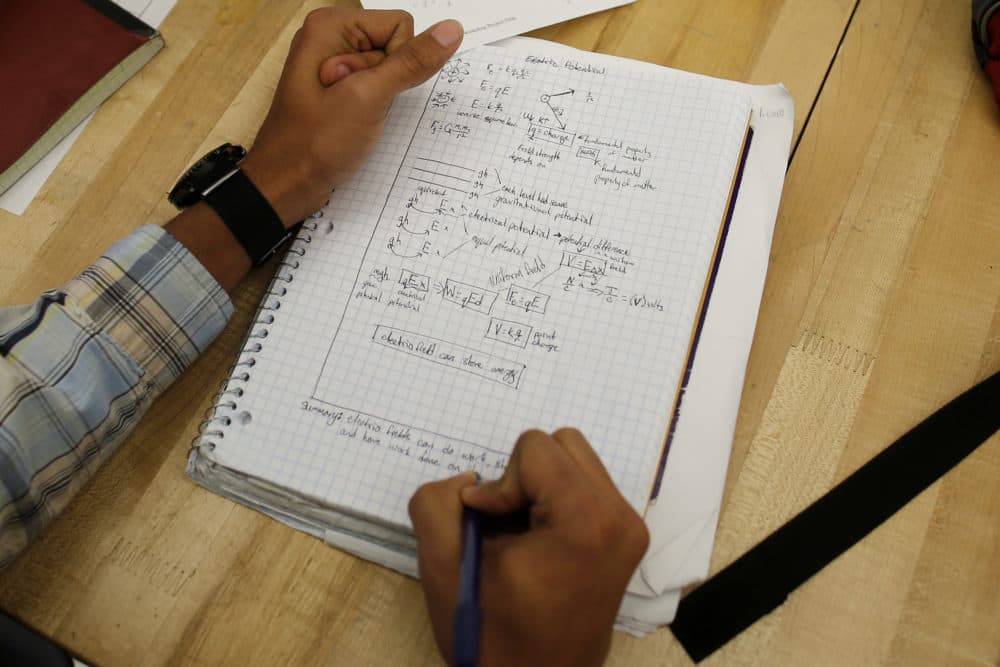Advertisement
Coronavirus Coverage
Worry, Stress As Students Prepare For Modified Advanced Placement Exams During School Shutdown
Resume
Amid the disruption from the coronavirus, high school students will be able to take Advanced Placement (AP) tests next month. It will be online and much shorter than previous years. But for some students, the idea of studying right now feels impossible.
"I’m constantly thinking about making sure my family doesn’t get sick and that I don’t get sick," said Elise, an Andover High School student. "I can’t imagine trying to prepare for this test if I get sick."
We’re only using Elise's middle name because she’s worried that speaking out could hurt her in the college admissions process. There’s a lot at stake for students taking these classes in high school. If you score high enough you can earn college credit and bypass some entry level classes.
"It’s scary to think about, because I know the test will impact my ability to get into the colleges I want to get into," she said.
She was hoping the College Board, the maker of the Advanced Placement tests, would cancel this year's exams. Since the tests are being offered, Elise worries it wouldn't look good on her college applications if she didn't take the exam.
"I feel like since we’re going to miss so much school, I don’t feel like I’m as prepared," said Kayleen Guzman, a junior at the City on a Hill Charter Public School in Roxbury. "Because I know my teacher was planning to do a lot of review sessions."
But Guzman feels like she has to at least try to take the test, especially since it could result in college credit.
In a statement, the College Board said they decided to move forward with the exams because an overwhelming number of students in a recent survey said they supported the idea. They added that AP exams are a crucial part of lowering the overall cost of higher education by accumulating credits without paying college tuition. The organization is also providing additional support on their website to help students prepare and have said they will help students who lack an internet connected device find a way to take the exam.
Still, a lot of teachers say there are significant equity concerns with the plan.
Savannah Lodge-Scharff, an AP physics teacher at Madison Park Technical Vocational High School in Boston, argued pushing forward with the test is unfair to students like hers — many who are middle or low-income and mostly students of color -- who are also juggling more responsibilities and stress because of the school closures.
"[They're] taking care of brothers and sisters. I have some of my students who are working 40 or 50 hours a week at the grocery store right now in the fear their parents are going to be laid off," she said.
Lodge-Scharff was also upset that the test will no longer have a multiple choice section. She’s spent her whole year preparing students for that usual format — half multiple choice, half essay. What the College Board will be using now is a shorter, open response test.
But other teachers believe that having all open responses could be a good thing.
"It allows students to show what they know, instead of multiple choice which forces them to struggle through what they may not know," explained Max McCullah, an AP U.S. history teacher at City on a Hill Charter Public School in Roxbury. He’s also glad his students will at least get a shot to earn some free college credit.
While hundreds of colleges said they support the College Board’s move, many have not said yet how much credit students will get for passing the exams.
This article was originally published on April 08, 2020.
This segment aired on April 8, 2020.
